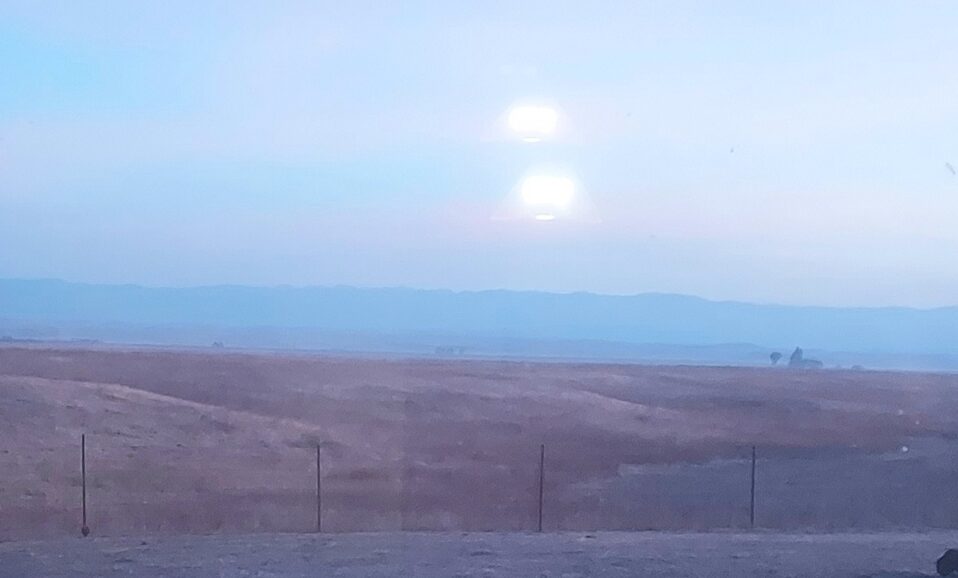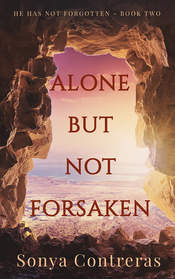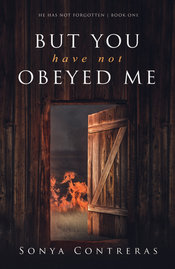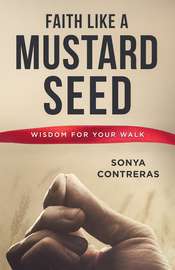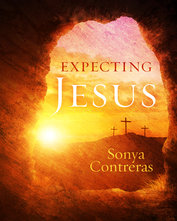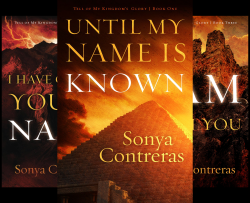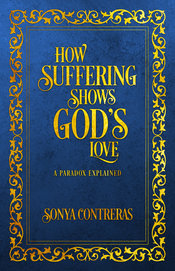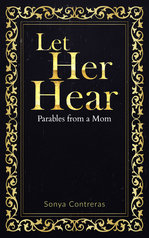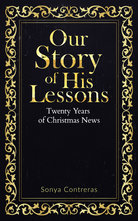- Home
- Index
-
My Books
- Book List
- Writing/Reading Articles Listing
-
My Short Stories
- What God Lost
- What God Lost — Part 2
- When Hope Was Lost
- A Battle in the Heavens
- To Live Forever
- Finding Peace
- Empty Hands
- From Fire and Thunder to Love and Submission
- The Coming One
- Forgiveness Made Possible
- The Innkeeper's Wife
- Do You Have The Right Words?
- The Lamb of God As Told by a Scribe
- What Love Is This?
- When Heaven Came Down
- Family
- Faith
Passover Remembered
(Originally printed in three articles in 2015. Consolidated 2022.)
The Jews have celebrated the Passover as commanded by God since the Exodus from Egypt
We will examine what the Passover means and how it relates to the Christian. God gave the Jews much symbolism that we as Christians can appreciate.
What is the Passover?
When the Jews were slaves in Egypt, God sent ten plagues to the country to persuade Pharaoh to let God’s people go.
Pharaoh refused.
God gave His people instructions. They must sacrifice an unblemished male year-old lamb, paint its blood on the doorway, and remain in the house until morning.
God’s final act of judgment brought the Death Angel passing through the night, slaying the first-born of those not protected by the blood-painted doorway.
The cost was great for those who ignored God’s instruction.
Those who obeyed found protection.
Pharaoh let God’s people go.
The people left, free from Egypt’s bonds, but also knowing their God.
God told His people to remember.
They have.
The Passover feast told of what God would send in their future: His sinless, perfect Lamb-sacrifice Who would take away the sin of the world.
The story is told in Exodus 11-12.
The Passover is celebrated with new meaning by Jesus and his disciples in Luke 22:14-23.
Passover: The Story Retold
We begin our celebration of Passover with a Jewish Christian family. They celebrate with new meaning: it not only reminds of their history, but of their Savior.
Our family has come to celebrate Seder (Passover). It’s a dinner of remembrance and symbolism, even more so now that my family is not just Jewish, but Christian. Some of the symbolism we did not understand until we met Jesus.
All leaven removed from the house.
I helped my Ima (mother) clean our house of any leaven. Even anything containing leaven had to be removed. I am glad that part is over. I do not like to clean all day. It makes me tired.
I have come to learn as a Christian that leaven symbolizes sin (I Cor 5:6-8).
Earlier in the evening just before the Passover meal, Abba (father) took his feather, plucked from our chicken, a wooden spoon, and a bag. He searched the house for any remains of leaven. He has to find it before we can eat. Because Ima knows how hungry we children are, she always leaves a bit of leaven on the refrigerator, so we can eat sooner. I see the twinkle in her eye as Abba reaches to find it and clean it spotless with his feather. He removes the bag from the house.
We sit around the table and prepare for the Seder.
Washing hands.
My brother Seth wrinkles his nose at what lies before Abba. I look at his hands and hope that he has cleaned them before sitting at the table. He was with his barn animals.
Abba washes his hands with the special laver and towel, passing them around the table to all my siblings. Since I am the youngest, I will wash last.
Jesus demonstrated this special washing to his disciples, but he did not just wash their hands, but their feet as well (John 13:2-17).
I am thankful that I do not have to use my brother’s water from his feet on my hands. That would cause me to wrinkle my nose.
Blessing said by the women as they light the Passover candle.
Ima stands to light the Passover candle. She represents Mary who brought the light (Jesus) into the world (Gen 3:15).
Haggadah—Telling of the Passover Story.
Abba retells the story of the Exodus of Egypt. He uses questions to make sure that I pay attention.
I cannot help but pay attention.
I look at the table all set and ready. Ima has worked hard to prepare everything. I have, too.
Elijah’s Cup
I look around the table and see the empty place setting left for Elijah the prophet. He was the honored guest of every Passover table. All Jews expect Elijah to come to announce the coming of the Messiah (Malachi 4:5).
I have even poured Elijah’s cup with wine. He would announce the Good News.
His seat is vacant.
First Cup of Wine
My Abba begins with this blessing: “Blessed are thou, Lord our God, King of the Universe, Who has created the fruit of the vine.”
I know now that Jesus was the first cup. (Luke 22:17-18).
Second Cup of Wine
I must recite in order the ten plagues of Egypt. “Water to blood, frogs, lice, flies, killing of livestock, boils,” I hesitate. Why can’t I ever remember all of them?
Abba looks to Seth. He continues the plagues, listing those that I already said, then adding, “Hail,”
I interject. “Hail, I should have known.” I am fearful during storms and try not to remember the image of hail as big as a man’s fist falling from heaven on animals and servants
Abba frowns at my interruption.
I must concentrate, for my brother continues with the plagues.
“Locusts, darkness for three days, and the firstborn son killed.” He finishes with smugness as he looks at me.
I shrug my shoulders. He has had more time to remember them.
In the solemnness of the moment, Abba reminds us our ancestors suffered, but their joy of the exodus was diminished by the suffering of others.
The Passover Symbols Remembered
Afikomen
Before my Abba (father), a bag with three compartments and three pieces of motza (like bread) waits for his attention.
He removes the middle piece of motza, breaks it in half, and returns a half back into the bag.
The other half he wraps in a linen napkin. He stands to hide it.
I must not look, so I press my eyes closed, but I try to hear where he walks. Why does he remember to remove his shoes on this night, when every other night he keeps them on and I could be able to hear where he goes?
I hear no sound until he returns.
I know my brother peeked; he always finds it.
Seder Plate
In front of every member of the family is a Seder plate. This helps me see the suffering of our people as they labored under Egypt’s bondage.
We eat each item together, reciting why it is on the plate.
Karpas—Greens
My Abba picks up the mound of parsley. “This represents…”
He waits until someone answers, “A symbol of life.”
He dips it as we follow his leading into a bowl of salt water. “This represents….”
I hear the answer: “Tears.”
Then we all eat as one. “Our ancestors were immersed in tears.”
I chew, but have trouble swallowing the bitterness. I try not to choke, because I cannot get a drink until Abba does.
Baytzah—Hard Boiled Egg
Abba moves to the next item on the plate, the hard-boiled egg. He picks it up and looks to my older brothers. “The egg represents…”
“Fertility,” one answers quickly.
“And…” Abba waits.
“Mourning.”
He nods. “Mourning over the loss of the two temples.” He pops the egg into his mouth in one bite.
I always watch with amazement, for I must eat it with smaller bites or else really choke.
He swallows and continues the instruction. “Eggs remind us of the daily temple sacrifices no longer offered because the temple no longer stands. We had no sacrifice to make us righteous before God.”
I wait. Sometimes Abba tells of the history of the first temple’s destruction at the time of the Babylonians in 586 BCE and the second temple’s destruction at the time of the Romans in 70 CE.
I hold my breath. My mouth cannot wait for a drink.
Because we are Christians and know the true sacrifice, Abba adds, “Christ became that sacrifice making us righteous before God. We no longer need the temple sacrifices.”
I look at the next thing on my plate, and shiver. It will not help my thirst.
Abba must also be thirsty also, for he does not elaborate on the temple’s destruction.
I breathe a sigh of relief.
Maror—Bitter Herbs
A mound of horseradish paste, made fresh by my older sister this afternoon, waits for us. We dip a piece of motza into the dip. Even though I try to hold my breath, it still brings tears to my eyes.
Abba speaks. “We cannot appreciate the sweetness of redemption unless we experience the bitterness of slavery.”
I cough and try to swallow. My tears are enough for me to want redemption and I’ve never been a slave.
My older sister shakes her head at me. As if I could control a cough!
Hazeret—Bitter Vegetable
Abba says, “Hazeret represents…”
“Slavery,” Seth answers quickly. He knows his mouth will feel better with the water from the lettuce.
Abba lifts the lettuce to his lips.
We follow.
I like this part. The lettuce has enough water to keep my thirst from hurting, especially since Ima makes sure that I have a good amount on my plate. She also has taken off the bitter roots from mine, while the others eat it. My brother looks at my mound of lettuce. I know he wishes for more, too.
Charoset
I chopped the apples for the Charoset.
Ima mixed them with nuts, honey, cinnamon and grape wine.
I almost tasted enough of it this afternoon to make me sick, but my sister stopped me.
Abba again is teaching. “Charoset symbolizes…”
My brother must have gotten enough lettuce to wet his mouth because he answers, “Mortar used by our ancestors to build bricks in the land of Egypt.”
Abba nods. “We remember an experience so bitter with something so sweet, why?”
My older brother answers, “Even the bitterest of labor can be sweet when our redemption draws nigh. Our salvation is near.”
Zeroa—Shank Bone of the Lamb
On every plate, even mine, is a bare shank bone of a lamb.
Abba holds his in his hand. “We have the bone of a lamb to remind us…”
My brother sits up straighter and leans forward in his seat. “In Exodus, Jewish firstborns were spared from the Angel of Death by blood of a spotless, innocent lamb painted on the doorpost of their homes.”
I don’t like the image of painting with blood, especially after seeing all that came from preparing the lambs for dinner. I shiver.
The shank bone also reminds us of the sacrificial lamb that was killed and eaten during the days when the Temple stood. I would have hated to see a lamb killed daily for my sin.
Today, because we know Jesus, we know that He was that perfect Passover Lamb. When we apply His blood to the doorposts of our heart, we are taken from death to life, from bondage to sin into freedom as a child of God’s.
John the Baptist spoke about Jesus: “Behold, the Lamb of God who takes away the sin of the world.” (John 1:29).
No more sacrifices need to be made. I am thankful.
Passover-The Lamb of God
The Meal
My stomach rumbles. The plate is empty.
Abba gives the blessing. The meal begins.
I can now take a drink when I wish.
I eat and eat, until my stomach cannot hold any more.
I must sit at the table and wait for Abba to finish. He talks and eats. It always amazes me how long it takes him to eat his meal. I try not to squirm as I sit.
Seth nudges me and motions for me to look. He always thinks he can make me look somewhere for the Afikomen while he runs and actually finds it.
I am not deceived this time. I shake my head.
Abba finishes eating and wipes his mouth and beard with his napkin.
Search for Afikomen
Abba pushes his chair back, an unspoken sign that we can search for the hidden Afikomen.
Reaching my hand in the cookie jar, I squeal with delight when I think that I’ve found it. But I am disappointed when I grasp only a napkin left to keep the vessel dry.
My brother gives the true linen napkin to Abba. The search is over.
I have lost again.
My brother gloats over me, whispering, “Should have listened.”
I shake my head.
Abba waits until we are settled.
He breaks the motza into small pieces. We all take one.
“In Luke 22:19, Jesus ‘took bread, gave thanks, and broke it and gave it to them, saying, ‘This is my body given for you; do this in remembrance of me.’ Jesus our Messiah would take the middle piece of motza that stood for the priest mediating between God and the people. He broke it, just like His body would be broken."
Just as the motza was wrapped in a linen napkin, Jesus’s body was wrapped in linen for burial.
Just as the motza was hidden, so Jesus was buried.
Just as Seth found the hidden motza, so Jesus’s body was resurrected.
Just as all of us received a piece of the motza, so Jesus gives life to all who believe.
The motza is striped, pierced, as His own body was striped and pierced, and by those wounds we are healed (Isaiah 53:5).
We use that middle piece now as believers’ communion bread. Jesus gives it new meaning.
Third Cup of Wine
Once the meal is over and we are settled after finding the hidden motza, Abba raises the third cup of wine to his lips. “When Jesus took the third cup in Luke 22:20 and I Cor 11:25, he said, ‘In the same way, after supper he took the cup, saying, ‘This cup is the new covenant in my blood; do this, whenever you drink it, in remembrance of me.’”
This was redemption from slavery to freedom. This is our communion cup.
Fourth Cup of Wine
Hallel means praise. Abba looks around the table.
I try not to wiggle. I have eaten too much and feel sleepy.
He looks at the fourth cup of wine. “Jesus took time to praise and thank the Lord at the end of the Passover Seder, his last supper. We shall, too.”
He offers blessing, praise and thanksgiving.
Elijah’s Cup.
Abba looks at the empty place setting we have set for Elijah.
He nods to my brother Seth.
Seth pushes back his chair and runs to the door to see if Elijah has come. He comes back sad.
Abba’s eyes twinkle. Our family has added this next part. We are Christians now, after all. He nods to me.
I run to the door, where my older brother waits. When I open the door, I shout, “Elijah has come to announce Good News to the people.”
I return with my brother.
He recites, “I am John the Baptist, a voice in the wilderness, prepare for the Lord.”
We know those were the words prophesied to tell of his coming. The wine glass will not be poured out. Elijah has come and our Good News is complete.
I breathe a deep breath. I am tired and very full. We have celebrated Seder, the Passover, for another year.
Abba says a blessing and we are dismissed.
The Lamb of God was sacrificed for me, freeing me from my sin, making me His child. I am full of joy!
No comments found
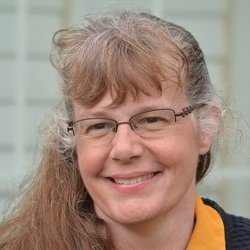
Author of Biblical fiction, married to my best friend, and challenged by eight sons’ growing pains as I write about what matters.
Receive weekly articles by giving your email address below:
